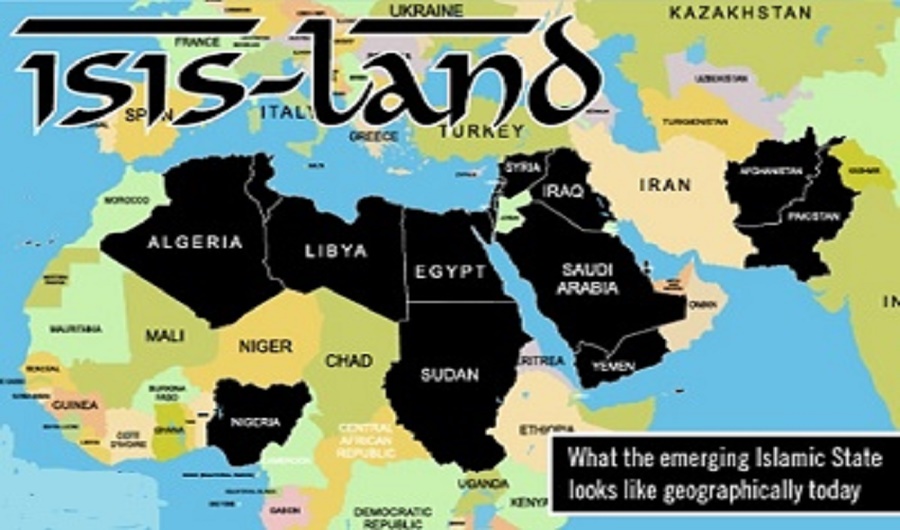Carter: U.S. Will Deploy More Troops to Syria to Combat ISIL by Shannon Collins
The United States will deploy approximately 200 additional forces to combat Islamic State of Iraq and the Levant forces in Syria, Defense Secretary Ash Carter said during his speech today at the Manama Dialogue in Bahrain.
The additional U.S. troops, which will include special operations forces, trainers, advisors and explosive ordnance disposal teams, will assist in coalition efforts to eject ISIL from Raqqa, the terrorist group’s self-styled capital in Syria, the secretary said.
“These uniquely skilled operators will join the 300 U.S. special operations forces already in Syria, to continue organizing, training, equipping and otherwise enabling capable, motivated, local forces to take the fight to ISIL, and also bringing down to bear the full weight of U.S. forces around the theater of operations like the funnel of a giant tornado,” Carter said. “This latest commitment of additional forces within Syria is another important step in enabling our partners to deal ISIL a lasting defeat.”

Middle East
Carter said the Middle East region is home to a strong U.S. military posture comprising more than 58,000 American personnel ashore and afloat — including more than 5,000 on the ground in Iraq and Syria — along with air, ground, maritime and ballistic missile defense assets. These forces, he said, are not only countering terrorists like ISIL and al-Qaida; they are deterring aggression and protecting U.S. interests and allies.
The U.S. has reached a critical milestone in the counter-ISIL coalition’s military campaign plan, the secretary said.
“As we meet today in Bahrain, American and coalition forces are engaged in an intense effort to help isolate and collapse ISIL’s control over Mosul in Iraq and Raqqa in Syria, bringing the great weight of our entire range of capabilities to bear in the enabling of capable and motivated local forces,” he said. “The seizure of these two cities is necessary to ensure the destruction of ISIL’s parent tumor in Iraq and Syria — the primary objective of our military campaign — and put ISIL on an irreversible path to a lasting defeat.”
Reaching this point is the result of deliberate actions taken since last year, Carter said. Back in 2015, Carter said he consolidated the war efforts for Iraq and Syria under a single, unified command — first led by Army Lt. Gen. Sean MacFarland, and now by Army Lt. Gen. Stephen J. Townsend.
Last October, Carter said, he and Chairman of the Joint Chiefs of Staff Marine Corps Gen. Joe Dunford developed, and President Barack Obama approved, the first in a series of recommendations to accelerate the counter-ISIL campaign —
“Since then, President Obama has approved every recommendation for additional forces and capabilities that the chairman and I have taken to him as we saw opportunities to accelerate the campaign — including just last week,” Carter said.
Objectives
The overall coalition military campaign plan devised last year had and continues to have three objectives, Carter said. The first, he said, is to destroy the ISIL cancer’s parent tumor in Iraq and Syria, “because the sooner we crush both the fact and the idea of an Islamic state based on ISIL’s barbaric ideology, the safer we’ll all be.”
The second objective, he continued, is to combat ISIL’s metastases everywhere they emerge around the world: in Afghanistan, Libya and elsewhere. The third objective, he said, is to work with U.S. intelligence, homeland security and law enforcement partners to help protect the U.S. homeland and its people from attack.
“The strategic approach of our military campaign in Iraq, Syria and elsewhere is to leverage all the tools at our disposal to enable capable, motivated, local forces to deal ISIL a lasting defeat,” Carter said. “IT was necessary to recommend this strategic approach because the only way to ensure that once defeated ISIL stays defeated is to enable local forces to seize and hold territory rather than substitute for them. Consistent with this approach, we have employed some of the U.S. military’s and our coalition partners’ most unique and exquisite capabilities, and some of our most specialized personnel — from air power and special operations forces, to train, advise, assist capabilities on the ground, to logistics and mobility, to intelligence and cyber tools.”
Carter added, “These assets have been able to not only help directly enable local forces on the ground; they can also bring to bear the full weight of American and coalition military might.”


